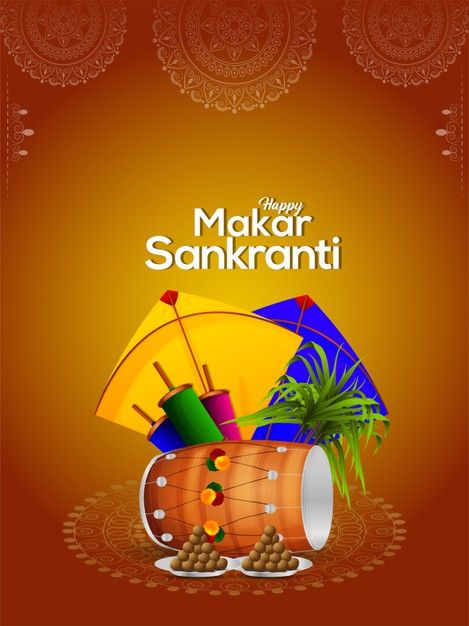
- This event has passed.
Sankranthi/Pongal
January 14

Sankranti (also called Makar Sankranti) and Pongal are major harvest festivals celebrated in India, each with its own cultural significance and customs, yet they share common themes of celebrating the harvest and honoring the Sun God.
Makar Sankranti:
Makar Sankranti is a widely celebrated festival in India, marking the transition of the Sun into the zodiac sign of Capricorn (Makar), which is considered a sign of the end of the winter solstice and the beginning of longer days. It typically falls on January 14th or 15th every year, depending on the solar cycle.
Key Aspects of Makar Sankranti:
Sun Worship: Makar Sankranti honors the Sun God. It signifies the end of winter and the arrival of warmer days, symbolizing the victory of light over darkness. People pray for health, prosperity, and happiness.
Celebration in Various Regions:
In Maharashtra, Gujarat, and Rajasthan: The festival is known for kite flying, where people compete in flying colorful kites and enjoy the outdoor festivities.
In Punjab: The festival is celebrated as Lohri, which marks the beginning of the harvest season, especially for crops like sugarcane.
In Tamil Nadu, Andhra Pradesh, and Karnataka: It is part of the Pongal Festival, which lasts for several days and includes cooking traditional foods and rituals.
Traditional Foods: Makar Sankranti is associated with tilgul (sesame and jaggery sweets), khichdi, and puran poli, all of which are made to symbolize the sweetness of life and the goodness of the harvest.
Social Significance: Makar Sankranti is a time for family gatherings, community feasts, and socializing. It’s also a time for charity, where people donate food, clothes, and other essentials to the less fortunate.
Pongal:
Pongal is a major harvest festival celebrated in Tamil Nadu and other South Indian states like Andhra Pradesh, Telangana, and Karnataka. It usually lasts for four days and marks the beginning of the harvest season, particularly for the rice crop. The festival is closely related to Makar Sankranti, as both are harvest celebrations, but Pongal has its own distinct set of customs and rituals.
Key Aspects of Pongal:
Celebration of Agriculture and the Sun: Pongal is dedicated to honoring the Sun God (Surya), the Earth, and the farm animals (especially cows and oxen) for their role in the harvest. It signifies the abundance of the harvest season.
The Four Days of Pongal:
Day 1 – Bhogi: The festival begins with Bhogi, where people clean their homes, discard old and unwanted items, and light bonfires to symbolize the removal of the old and the welcoming of the new. Bhogi is a day of cleansing and purification.
Day 2 – Pongal (Main Day): The second day is the most important, called Pongal. This is when the new harvest is boiled in a pot and offered to the Sun God in a ritual known as Pongal, often in the open, with people chanting “Pongalo Pongal!” The dish made from the new rice, sweet Pongal, is cooked and offered in thanks for the harvest.
Day 3 – Mattu Pongal: This day honors cows and bulls, the animals that are essential for plowing fields and assisting in the harvest. Cows and bulls are bathed, decorated, and paraded. In some rural areas, people participate in Jallikattu, a bull-taming sport.
Day 4 – Kaanum Pongal: The final day is for family reunions, picnics, and outings. People visit relatives, exchange gifts, and celebrate the harvest with joy and gratitude.
Traditional Foods:
Pongal: The main dish is a sweet and savory rice dish, also called Pongal, made from freshly harvested rice, lentils, and spices, cooked together.
Sweets: Sakkarai Pongal (sweet rice made with jaggery, ghee, and coconut) is commonly prepared on the main day.
Sugarcane and Turmeric: Sugarcane, a major crop in Tamil Nadu, is often offered during the festival, and turmeric and mango leaves are used in decorations.
Cultural Practices:
Kolam: Traditional designs made from rice flour, known as kolam, are drawn in front of homes to welcome prosperity.
Kite Flying: In some parts of South India, kite flying is also a popular activity on the second day of Pongal, similar to the celebrations in Gujarat for Makar Sankranti.
Similarities Between Makar Sankranti and Pongal:
Both are harvest festivals that celebrate the agricultural abundance.
Both involve rituals honoring the Sun God, symbolizing a time of new beginnings.
Traditional foods made from freshly harvested crops like rice, jaggery, and sesame are prepared and shared with family and friends.
Both festivals promote social harmony, community gatherings, and charitable activities.
Conclusion:
While Makar Sankranti is a pan-Indian festival with diverse regional celebrations, Pongal is a South Indian festival that is especially significant in Tamil Nadu. Both festivals are deeply tied to agriculture and the changing seasons, symbolizing the transition from winter to spring, and they celebrate the blessings of nature, abundance, and community.
